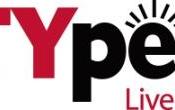�PAGE � �PAGE �1� Business Entry Plan
Running Head: Business Entry Plan
Business Entry Plan
[The name of the writer will appear here]
[The name of the institution will appear here]
[The name of the Professor]
[Course]
.
�
Abstract
An entry level business plan for a specialty high-end flooring contractor: A new business venture that will provide services of installing new floors, floor renovation, and fixing all sorts of floor tiles (Imported tile, granite, marble, hard wood, and carpeting). The activities of business will include merchandising and servicing. Registering and licensing the business, choosing the form of the organization.
�
Business Description
Specialty high-end flooring contractor: A new business venture that will provide services of installing new floors, floor renovation, and fixing all sorts of floor tiles (Imported tile, granite, marble, hard wood, and carpeting). The activities of business will include merchandising and servicing, i.e. selling the floor to the customer and servicing its installation.
Fair profits will be earned both from selling the tiles and servicing their installation.
Goal of the Business
The goal of the business is to provide high quality products and service, at reasonable costs, and continue learning about the leading flooring concepts, while continuing to set the industry standards in quality and customer service.
Goods and Services Provided
Tile: Glazed and unglazed ceramic, porcelains, marbles, granites and slate for floors and walls including mud jobs and pans for custom showers and tubs.
Wood: Specialty woods, finished and unfinished solid hardwood, engineered woods (for today's growing radiant heat market) and laminate floors.
Resilient Flooring: Sheet vinyl and tile, marmoleum, luxury vinyl tile, cork and VCT.
Carpet: All types and styles from builder grade to high end wools. Carpet can be installed in numerous ways depending on the needs: stretch, glue down or double stick.
Services: Services will include installing the floors or carpets, and doing restoration and maintenance work periodically as and when required.
Marketing
The company will deal in specialty high-end flooring to customers with specific needs. The company would be marketed as a specialized floor contractor for specific purposes and requirements of the customer.
It would be marketed in magazines related to construction and renovation, newspaper ads, flyers and pamphlets, and by simple word-of-mouth. The quality and craftsmanship of the floorings will be maintained at high standards to increase the word-of-mouth publicity of the company, also, the above-average quality will create an image of the company as the industry leader in quality and craftsmanship of specialized tiles.
Target Market
The target market will include educational institutions, corporate clients (requiring floorings in offices, warehouses, shops etc), the healthcare industry (hospitals, offices, clinics), the hospitality industry (hotels, restaurants etc), and residential clients (new homeowners, newly weds, and homes requiring new floors)
Operations
Initially, a showroom and an office will be set up where customers can come and chose their required type and style of floorings and tiles. The orders will be placed in this office, which will then send its team of floor specialists to inspect the area where flooring is required. After inspection, an estimate will be made about the cost and the requirements of the job, a contract will then be signed with the customer and the duration of work will be specified, according to initial estimation.
The tiles or the floorings required will be procured if not already available in the company's warehouse. These will then be installed by the company's floor specialists and workers according to the customer specifications already agreed upon.
Profits would be made on the sale of the tiles and/or floorings to the customer and the servicing fee of the installation. The costs incurred will include the wages paid, cost of tiles and floorings, warehouse and office rents.
Form of the Business Organization
Before deciding on the form of the business organization, the scale of business must be taken into consideration. In this case the size and the scale of business is not very large. Initially the business may have only 5 to 10 employees, and may work on one project at a time. However, with time the number of employees may increase and two or three projects can be worked upon simultaneously, but the structure and hierarchy of the organization will remain same.
From a legal point of view, the choices of entity are (Meigs et al., 2004, p. 234):
Sole proprietorship
S - corporation
C - corporation
General partnership
Limited partnership
Limited liability partnership
Professional limited liabilities companies
Limited Liability Company
Not for profit corporation
The Liability Issues: A key concern of most business owners when choosing a business entity is their personal exposure to liability for claims and lawsuits from those with whom they will be doing business. A sole proprietor's personal assets such as the home, car and savings account might be "seized" to pay a business debt or judgment.
This issue of personal liability for business obligations applies not only to the business operated as a sole proprietorship but to the general partnership and, to some extent, the limited partnership as well.
The corporation, Limited Liability Company and limited liability partnership are attractive forms of entity to some business owners because each protects the owner's personal assets from business debts and judgments.
The Taxation Issue: The sole proprietorship, the general partnership, the limited partnership, the S-corporation and the limited liability company are all treated under current tax law as "pass-through" entities for tax purposes. By passing through the income tax liability to the owners' personal tax returns, this allows the business income to be taxed at the individual tax rate as opposed to the corporate tax rate which is generally a higher tax rate.
Ownership Issues: Who or what will be an owner in your business is an important issue and can dictate which form of business entity is available to you.
A Limited Liability Company allows for foreign ownership, classes of ownership, corporate ownership, two or more owners, active and passive investing and more flexibility. (Shelburne Ferguson, Jr. 2008)
In view of the above, since the size and scale of the company will be much smaller initially, therefore it should remain a sole proprietorship or a partnership. However, it can be insured against lawsuits to protect it from litigation and liability issues.
Licensing
Licensing the business as a sole proprietorship in the State of Washington can be done online at the Web site (Department of licensing, Master business Application, https://fortress.wa.gov/dol/mls/)
Or the official State Government of Washington Web site Retrieved June 22, 2008 http://access.wa.gov/business/getlicense.aspx
Financing
The business can be financed by the owner's equity, bank loans, or investments from different partners in case of a partnership.
Initial investments required will be those related to the office, warehouse, inventory, tools and equipment etc. After initial expenses, the first few projects will be financed by the equity, and later on the running expenses can be financed through by each project's revenuas collected side-by-side with expenses.�
Reference
Meigs et al. (2004) Accounting, The basis for business decisions. McGraw-Hill
Shelburne F Jr. (2008) http://www.fergusonlawoffice.com/PDFs/BusinessOrganization.pdf
Official State Government Web site Retrieved June 22, 2008 http://access.wa.gov/business/getlicense.aspx


